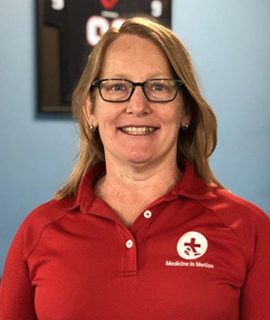Understanding the Concept of Exercise After Serious Illness
After battling a serious illness, the body often lacks the strength and vitality it once had. Resuming or even beginning a new exercise regime can be a crucial component of recovery. Exercise not only helps to rebuild physical strength, but also enhances overall health and well-being.

Importance of Exercise for Recovery and Overall Health
Exercise plays a pivotal role in recovery after a serious illness. It aids in boosting the immune system, improving mood, and enhancing overall quality of life. Furthermore, exercise can help to prevent the recurrence of certain illnesses and improve long-term health outcomes.
Precautions Before Resuming Exercise
While exercise is beneficial, it’s crucial to proceed with caution after a serious illness. Start slowly, listen to your body, and consult with your healthcare provider before beginning any new exercise regimen. Prioritize rest and recovery, and ensure that you are adequately nourished and hydrated.
Understanding the Impact of Serious Illness on Physical Fitness
Experiencing a serious illness can significantly disrupt your physical fitness, severely impacting strength and endurance. Conditions such as cancer, heart disease, or serious infections can lead to prolonged bed rest, reduced mobility, and muscle atrophy. This can subsequently result in decreased physical strength and lowered endurance capacity.
The Importance of Gradual Recovery
It’s crucial to understand that recovery is a gradual process. While the desire to regain pre-illness fitness levels is understandable, rushing into strenuous activities can do more harm than good. It’s essential to start slow, gradually increasing the intensity of your workouts as your strength and endurance improve. In this way, you can safely rebuild your physical fitness without risking injury or health setbacks.
The Role of Medical Professionals in Recommending Exercise
Medical professionals play an integral part in guiding patients on the right time to start exercising after a serious illness. Physicians can evaluate a patient’s current state of health, considering factors like heart rate, blood pressure, and overall strength, to determine if it’s safe to begin an exercise regimen. This information is crucial to prevent potential health risks associated with premature exercise. [Mayo Clinic]

Personalized Exercise Plans Based on Health Conditions
Every individual’s journey to recovery is unique. Therefore, exercise routines must be personalized to cater to their specific health conditions. Medical professionals can devise a customized fitness plan, taking into account the patient’s health history, physical capabilities, and recovery goals. This ensures the exercise program is effective, safe, and aligned with the patient’s overall health objectives. [CDC]

Types of Exercise Suitable for Post-Illness Recovery
Regaining strength after a serious illness could be challenging. However, with the right types of exercises, your journey to recovery can be smoother. Start your post-illness recovery with low-impact exercises—they are gentle on the body, yet effective.
Walking is a great starting point. It increases heart rate, boosts mood, and improves endurance, without exerting excessive stress on the joints.

Another low-impact exercise is swimming.
This full-body workout improves muscle tone, strengthens the heart, and enhances flexibility, all while minimizing joint strain.

Yoga is also beneficial.
It promotes balance, flexibility, and calmness, aiding both physical and mental recovery.

Remember, it’s crucial to consult your healthcare professional before starting any exercise regimen post-illness. They can provide a tailored program that suits your specific recovery needs and physical capabilities.
Signs Indicating You’re Ready to Start Exercising
Recognizing the right time to resume physical activity post-recovery is crucial for your health. Here are some of the physical and mental indicators that may suggest you’re ready to start exercising:
- Stable vital signs: If your heart rate, blood pressure, and respiration rate have returned to your normal range, it’s a positive sign.
- Regained strength: You no longer feel weak or fatigued and can perform daily tasks without any problems.
- Mental readiness: A renewed interest in physical activities and an improved mood can indicate mental preparedness to begin exercising.
- Physician’s approval: Most importantly, your doctor has given you a green light to start working out again.
Remember, it’s essential to listen to your body and not push beyond your limits.
Gradually increase the intensity, frequency, and duration of your workouts. It’s not about rushing; it’s about consistency and persistence.
The Importance of Not Pushing Beyond Limits
Pushing yourself too hard can lead to injuries and setbacks. It’s more beneficial to follow a consistent, moderate exercise routine. The CDC guidelines are a great resource for understanding safe levels of exercise. Be aware there are many conditions that once encountered, may result in a very long journey back to full fitness… if you ever reach it. Where the illness has resulted in damage to your organs (Covid can do this, but many other conditions as well) you may never recover to your previous physical fitness.
Do not fall victim to the belief, that you can simply push through the pain barrier when returning to heavy training after a serious illness. Those messages of “this is too much!” might be more serious than a lack of exercise-driven drop in fitness. If you don’t feel you are returning to your previous fitness levels regardless or you are unable to train at your previous levels, this is something to be investigated with your doctor.
Stay tuned to your body’s signals, respect your pace, and remember that every step forward contributes to your overall well-being.
Potential Risks of Exercising Too Soon After Illness
Resuming your exercise regimen too soon after a serious illness can pose considerable risks. Overexertion can lead to a relapse, delayed recovery, or even more severe health complications. The body needs adequate time to recover and regain strength. Exercising prematurely can strain the immune system, making it more susceptible to infections. [source]
Symptoms Indicating Overexertion or Complications
It’s crucial to listen to your body and watch for symptoms of overexertion. These include extreme fatigue, prolonged muscle soreness, increased heart rate, insomnia, or decreased performance. [source] If you experience any of these symptoms or other unusual discomfort, it’s a sign that you may be pushing yourself too hard and should consider seeking medical advice.
Remember, it’s not worth risking your health by rushing back into your exercise routine. Always consult with a healthcare professional before resuming exercise after a serious illness.
Guidelines for a Safe and Effective Exercise Routine
After overcoming a serious illness, it’s crucial to adopt a well-planned exercise regimen to aid recovery and rebuild strength. Here are some key guidelines:
- Gradually increase exercise intensity: Don’t rush. Start with low-intensity workouts, then gradually increase the intensity over time. The Centers for Disease Control and Prevention recommends a gradual increase to avoid injury and burnout.
- Incorporate rest days: Rest is as important as exercise in a balanced fitness plan. Regular rest days allow your body to recover and adapt to the new physical demands.
- Maintain hydration and nutrition: Staying hydrated and eating a balanced diet are essential to fuel your workouts and recovery. Consult a dietitian or use the MyPlate tool for guidance.

Remember, it’s vital to consult your healthcare provider before starting any workout routine after a serious illness. They can help tailor an exercise program that suits your recovery and health goals.
Conclusion: The Road to Recovery Through Exercise
Exercising after a serious illness is not merely a choice; it’s a critical component of complete recovery and overall health. It assists in restoring physical strength, enhancing mental wellness, and boosting resilience. However, we also emphasize the importance of a cautious approach. Exercising too strenuously or too soon might escalate health risks and hinder healing.
Before embarking on an exercise regimen, it’s vital to consult with your healthcare provider. They can recommend the best exercises and intensity levels tailored to your health status, capabilities, and recovery progress.

Remember, it’s not about how swiftly you can return to your previous fitness level. It’s about safely and steadily regaining your health. So, always proceed with care and under professional guidance when you exercise after a serious illness.
Rest assured, with diligence and patience, you’ll reclaim your vitality and enjoy the benefits of physical activity once again.

Dr. Martha Pyron is a recognized sports medicine physician and the founder of Medicine in Motion, an Austin-based practice specializing in comprehensive medical care for active individuals and athletes. An active contributor to her field, she uses her extensive experience as a former collegiate athlete to aid her patients and develop innovative care strategies. Beyond her clinical practice, Dr. Pyron is known for her involvement in the local athletic community and her commitment to promoting health and fitness.



